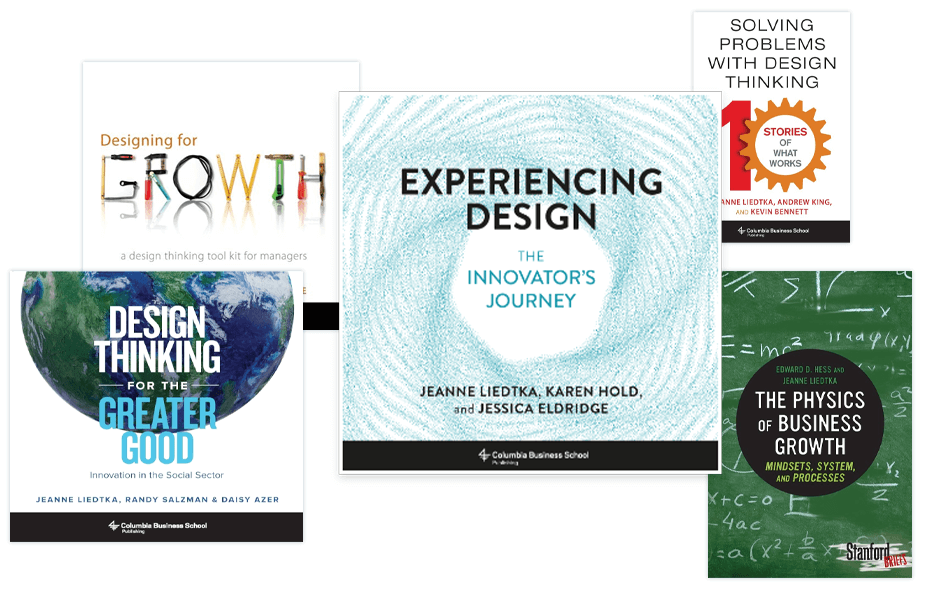Introducing: Designers can change the world – Conversations with Jeanne Liedtka
Sometimes a conversation is so good, it reminds you why you love what you do for a living. That’s how I felt after sitting down with Prof. Jeanne Liedtka to kick off our ‘Conversations with Jeanne Liedtka’ series, to discuss all things design thinking.
I’ve followed Jeanne’s work for over a decade, so it’s a privilege to be working alongside her and her co-authors Karen Hold and Jessica Eldridge to bring some of the lessons from their new book: “Experiencing Design, the Innovator’s Journey” to life.
I don’t get as many opportunities as I’d like to stand back and discuss design and its power in-depth. We’re all too busy focusing on the day-to-day. So it was great to take some time out with Jeanne to talk about it in detail. It was such an interesting and inspiring conversation, and I’m excited to share with you what we talked about.
In case you don’t already know, Jeanne is a professor at the University of Virginia Darden School of Business and a true pioneer in the field of human-centred design, and particularly in helping non-experts put it to use. She’s written several seminal books on the subject (Designing For Growth, Design Thinking for the Greater Good, Experiencing Design and others), all of which I strongly recommend.

Design thinking can change the world
Design thinking has been around a long time, but in a world facing as much change and uncertainty as ours, its potential to help shape the future people really want has never been greater. Many organisations have already implemented it and for some the impact has been profound. They’ve discovered that human-centred design holds the key to building the future their customers want – and that it brings a whole host of benefits, from gains in revenue to more engaged employees. But for others, the results have not materialised, at least not in a measurable way.
Over the last decade, Jeanne and her team at Darden have conducted research with hundreds of businesses to understand what it really takes to enable non-professional designers (i.e. accountants, marketeers, project managers, executives) to make a tangible difference with design. They looked not only at what lies behind the great success stories, but also what causes design thinking initiatives to fail.
What they learned has profound implications for any organisation seeking to embed the principles of human-centred design into their working culture, or for anyone who might be struggling to make an impact within a team that has tried to implement design thinking with limited success.
Dive into ‘Conversations with Jeanne Liedtka’
Jeanne brings a rare candour and depth of insight into what it really means, and takes, to do design thinking well. She also doesn’t pull any punches when it comes to the sometimes hard truths about why some organisations have not been successful in achieving the results they were looking for from design.
After many years working in this area, Jeanne’s got a lot of wisdom to share – far more than we can fit in just one blog post. So we’re kicking off a series of posts, all covering what Jeanne had to say – in her own words – about what it takes to really unlock the transformative potential of design within ourselves, and the organisations we work in.
We hope you get as much out of reading them as we have from working with Jeanne.

As part of our collaboration with Jeanne and her team, we’ve created a suite of diagnostic tools to help people put the lessons from this research into practice: the Innovation ImpactTM Skills Assessment, used by individuals and teams to assess and deepen their ability to successfully innovate; and the Innovation ImpactTM ROI Diagnostic, used by organizations to measure the impact of design thinking on real business outcomes.
Learn more about these assessments here:
Innovation Impact

